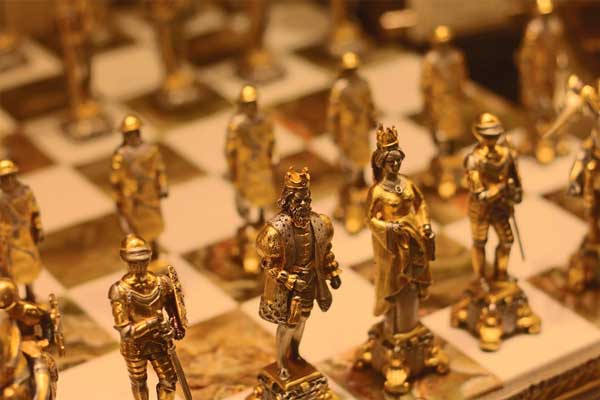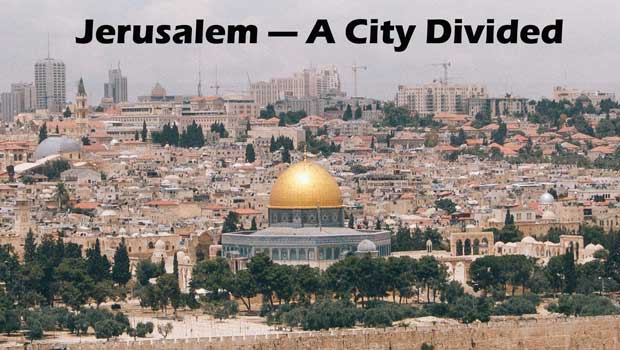Jesus, son of Mary(peace be upon them both),is known to mankind as an epitome of virtue and piety and two major Semitic world religions, Christianity and Islam, recognize his holiness,albeit with a difference. In Christianity, he has been given the status of divinity whereas in Islam he is considered wholly human, a prophet of God. You cannot be a Muslim and not believe in Jesus’ virgin birth and the miracles performed by him, all of which are mentioned in the Quran, the revealed book of God.The Quran tells us,“Say: We believe in Allah and in that which has been revealed to us, and that what was revealed to Abraham, Ismail,Isaac, Jacob and his children, and what was given to Moses and Jesus, and in what was given to [all]prophets from their Lord. We make no difference between one and another of them, and to Him do we submit” (2:136).
Quran tells us that Jesus cured the sick, the blind, and the lepers, but only with God’s permission and power
There are 93 verses in the Quran referencing Jesus, and he is mentioned 25 times by name. God mainly tells the story of Jesus in the chapters titled Maryam, The Table-spread, and The Family of Imran.Mary(pbuh),mother of Jesus, has a full chapter to her name in which she is praised by God as the most exalted among women of all nations. Quran treats Mary (Maryum) as a very pious and God-fearing person in her own right. The Quran mentions various women but only one woman by name and it is Mary.Mary’s story unfolds from before her birth when her mother pledged her unborn child, thinking it would be a son, to the service of God. She was disappointed when she was blessed with a girl but nevertheless kept her promise. Mary(pbuh) stayed in the temple under the guardianship of Prophet Zakariya (pbuh).God provided her again and again with food while she was in her prayer chamber and she told the prophet that it came from God when he inquired. Lateran angel in human form visited her, giving the glad tidings of a holy son who would be a sign and a mercy from God. Mary(pbuh) asked how she could conceive as she was a virgin. The angel answered that it was a thing decreed by The Lord. The confirmation of Jesus’ virgin birth is unequivocally stated in the Quran and it is likened to the birth of Adam.
When Mary was ready to give birth to Jesus in the wilderness,alone and in severe pain, God comforted her with fresh water from a stream and dates from a nearby palm tree. After giving birth, Mary brought Jesus into the town and people gathered around her and accused her of unchastity. As she had taken a vow of silence that day,Mary(pbuh) pointed to Jesus and he spoke:“I am indeed a servant of Allah; He has given me the Scripture and made me a prophet. And He has made me blessed wherever I may be, and he has enjoined on me prayer and charity as long as I live. And He has made me dutiful to my mother, and not arrogant,graceless. And peace was upon me the day I was born,and peace will be upon me the day that I die and the day I shall be raised up to life” (19:30-33). This miracle of Jesus talking as a babe in his cradle is mentioned in the Quran but not in the Bible. Another miracle of Jesus(pbuh)mentioned only in the Quran and not in any other scripture is that he breathed life into birds made of clay,by the will of God.
Quran also tells us that Jesus cured the sick, the blind, and the lepers, but only with God’s permission and power.Similarly, he brought the dead to life. He could also tell what people had eaten and stored in their houses. When his disciples asked him to ask God to send heavenly food so that they could be sure about the truth of his message, God did give Jesus this miracle but with a stern warning that whosoever disbelieved after it would be severely punished. The Quran specifies that Jesus(pbuh) performed his miracles according to the will of God and he openly gave all credit of his powers to God Almighty.
Jesus (pbuh) taught strict monotheism,as did all the prophets sent by God. He did not teach his divinity or that of his mother. He followed in the footsteps of the previous Israelite prophets, taught wisdom and was given the gospel. Quran says that he obeyed God with utmost humility. He was the seal of Israelite prophethood and his task was to unite his people and make things clear with regard to matters about which they differed. He was well-versed in Torah and was given the Injeel by God. Muslims believe that this divine revelation is no longer available in its original, uncorrupted form.
The traditional western view of the crucifixion of Jesus is strongly contested by the Quran. It says: “They said in boast, ‘We killed Christ Jesus, the son of Mary, the Messenger of Allah.’ But they killed him not, nor crucified him, but so it was made to appear to them, and those who differ therein are full of doubts with no certain knowledge, but only conjecture to follow; for of a surety, they killed him not. Nay, Allah raised him up unto Himself, and Allah is exalted in power, Wise” (4:157-158)
The Quran talks about the disciples of Jesus as well, telling us, “When Jesus found unbelief on their [his people’s] part, he said, ‘Who will be my helpers in the cause of Allah?’ The disciples said, ‘We are Allah’s helpers; we believe in Allah, and bear witness that we are Muslims’” (3:52). Opposition to Jesus grew and his people plotted to kill him, but God had a better plan. The traditional western view of the crucifixion of Jesus is strongly contested by the Quran. It says: “They said in boast, ‘We killed Christ Jesus, the son of Mary, the Messenger of Allah.’ But they killed him not, nor crucified him, but so it was made to appear to them, and those who differ therein are full of doubts with no certain knowledge, but only conjecture to follow; for of a surety, they killed him not. Nay, Allah raised him up unto Himself, and Allah is exalted in power, Wise” (4:157-158). The Quran leaves it at that. But certain ahadith say that Judas Iscariot, the traitor to Jesus (pbuh), was transformed, by the will of Allah, to take on the appearance of Jesus and died on the cross instead.
The words used to describe Jesus (pbuh) in the Holy Quran arenabi (prophet), rasul(messenger),wadjih(worthy of esteem in this world and next), mubarak (blessed and source of benefit for others),and abd-Allah(servant of God). Quran also uses the term al-masih for Jesus, meaning the one who is anointed. In Jewish tradition, a king or a religious leader was anointed with olive oil. The Jews were under Roman occupation and were waiting for a deliverer or messiah from God. Quran confirms that Jesus was the messiah. The Quran also refers to Jesus(pbuh) as kalimatullah (the Word of God). It is interpreted as a reference to the creating word of God,uttered at the moment of Jesus’ conception, or as recognition of Jesus’ status as a messenger of God, speaking on God’s behalf. Ruh-ullah (the Spirit of God) is a special title given by Prophet Muhammad to Prophet Jesus, peace be upon them both.
According to the Quran, Prophet Jesus gave the glad tidings of “Ahmad,” a prophet to follow him. The Quran says,“And when Jesus ,the son of Mary, said,‘O children of Israel,indeed I am the messenger of Allah [sent] to you confirming what came before me of the Torah, and bringing good tidings of a messenger to come after me,whose name is Ahmad” (61:6). Ahmad is also a name of the Prophet Muhammad. Both names have the same root in Arabic, h-m-d, meaning praised. Both names mean “the praised one.” Indeed, Muhammad and Jesus (peace be upon them both) were sincere and devoted messengers of God, sent to bring enlightenment and salvation to people.
“Whoever bears witness that there is no god but God Alone, with no partner or associate, and that Muhammad is His servant and messenger, and that Jesus is His servant and messenger, a word which God bestowed upon Mary and a spirit created by Him, and that Heaven is real, and Hell is real, God will admit him through whichever of the eight gates of Heaven he wishes” (Bukhari and Muslim).






